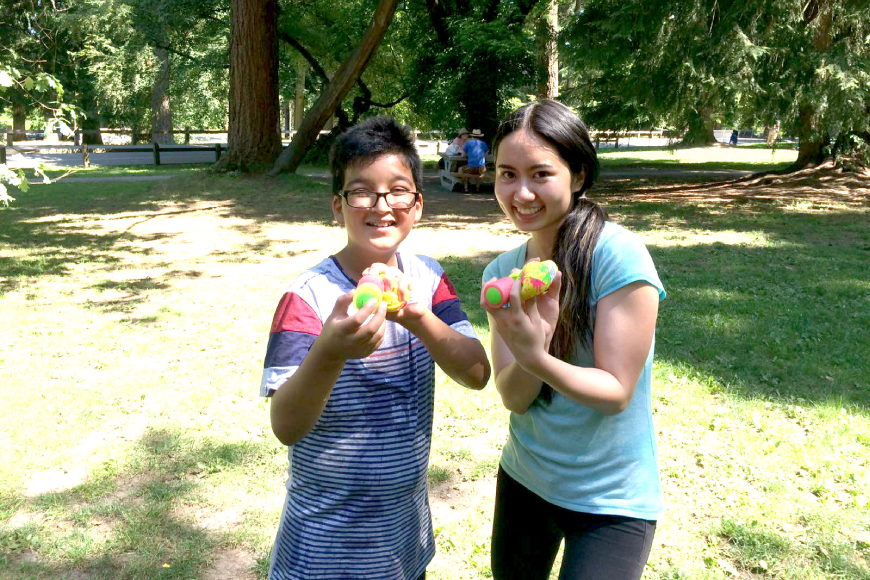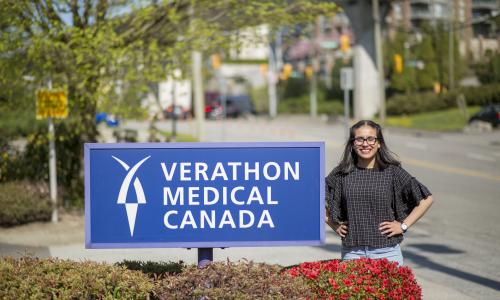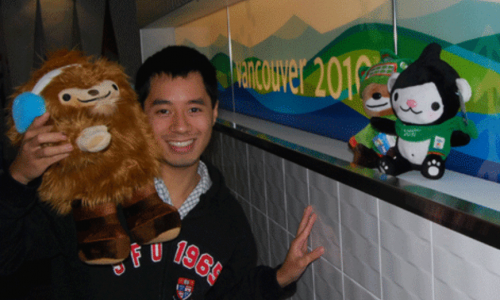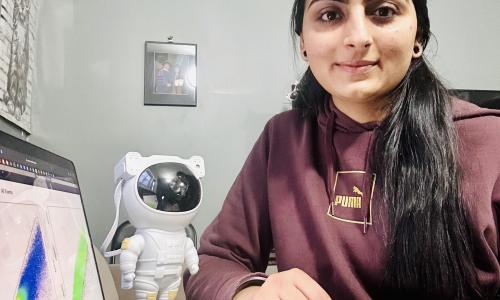
My co-op experience as a Child Life Specialist this summer at Western Society for Children has deepened my understanding of disability, and made me realize the difference that just one person can make to another’s life.
Western Society for Children (WSFC) is a non-profit organization that has, since 1993, provided community-based support to children with disabilities and their families. With the help of a strong volunteer base, WSFC fosters hope and encouragement through its various programs and services made available to families; among them are parent workshops, funding assistance, a leisure buddies-mentorship program, as well as a resource cupboard containing toys and games that are available for loan. Ultimately, WSFC envisions a future where disability ceases to preclude a child from achieving their full potential.
Leading up to my first day on the job, I was very excited because I had some experience working with children before, but it was always with children who had not been formally diagnosed with any type of disability. For this reason, I wanted to be open to new experiences. Additionally, before transferring to SFU, I had taken a course at Langara called Perspectives on Disability and Injury, and what really intrigued me was learning about the different perspectives, or models of disability; the charity, medical, social, and rights-based models. I knew learning about an area that interested me was one thing, but it would be incredible to actually have hands on experience outside of the classroom.
On my first day of work, my supervisor, the Executive Director of WSFC, discussed the organization’s social model of disability. This model immediately reminded me of the content that I had learned at SFU while taking HSCI 340 Social Determinants of Health, as well as the course material I learned at Langara. My supervisor explained that when assessing a child’s progress, it is not enough to know how they are doing in terms of the equipment or therapy they are receiving, as that would touch on a purely medical model. Rather, it is essential to also look into a child’s social wellbeing; are they actively participating in community and practicing skills through fun, engaging activities? For many children with disabilities, leisure opportunities may be scarce, which threatens their social wellbeing. This is because for families with children with a disability, costs are eight times higher. A large percentage of their family income then goes towards purchasing equipment or therapy, leaving little disposable income left over. Moreover, children with physical disabilities in particular may face barriers to accessibility leaving them unable to enjoy activities as much as their able-bodied peers. For instance, playgrounds are heavily frequented by children, yet many today still aren’t accessible for children of all abilities.
Throughout my work term, I worked on various tasks such as planning for community events, conducting research relating to disability supports, helping out with social media, and creating outreach material. However, for me, the most meaningful part was my time spent out in the community. My role as a Child Life Specialist allowed me to witness firsthand how much of a difference meaningful interaction and engagement with children can make to their lives, as well as the lives of their families. Since each child that I worked with was uniquely situated on a spectrum of diverse abilities, the outings and activities needed to be customized around each child’s different needs and interests in order to help them reach their full potential. For instance, some activities would be geared towards targeting more physical or sensory needs, whereas others would focus more on self-control and concentration. As the weeks progressed, it felt really rewarding whenever I noticed an improvement in a child’s skill set due to the practice they were getting with these customized activities. As a mentor to these children, I was not meant to replace the role of a professional therapist, but I did support and encourage them to effectively practice skills, connect with others, and have fun exploring interests. I loved how even with these responsibilities that I had as a mentor, the children tended to view me more as a buddy than anything else; someone they could consider a friend and could casually chat with about their interests. Rather than focusing on each child’s disability, I saw their ability, as well as the uniqueness that each one brings with their different personalities and interests. As I was saying goodbye for the day to one of the children, I knew that I was making a difference in this child’s life when they said, “Don’t go!” Another day, I was touched when the sibling of another child I worked with gave me a paper snowflake they had made.
An equally meaningful part of being out in community was being able to help a family apply for funding support or support resources. In particular, I got to make contact with relevant parties on the family’s behalf, as well as help the family fill out the funding application forms. The experience opened my eyes to how frustrating it can be for families to obtain support in a timely manner. It made me realize the amount of paperwork involved with these applications, and how the whole process works in general. Although there was only so much I could do to help due to the long wait lists that are typical when seeking support, it made me feel good that I was able to provide some assistance.
Oftentimes we may think, “I’m just one person” and assume that our actions cannot make that much of a difference. Yet, this whole experience proved that such an assumption could not be further from the truth. When we have good intentions and want to make a meaningful impact on another’s life, we can. The Health Sciences Co-op program provided me with an opportunity to make a real difference in the lives of others this summer, and I could not be more thankful.
Beyond the Blog
- Want an opportunity like Emily's? Learn more through the Health Sciences Co-op homepage.














